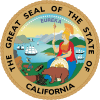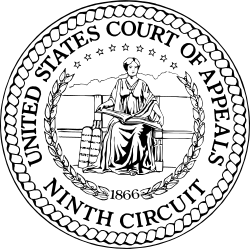California foie gras law facts for kids
Quick facts for kids California foie gras law |
|
|---|---|
 |
|
| California State Legislature | |
| Full name | Force Fed Birds |
| Introduced | February 19, 2004 |
| Assembly voted | August 24, 2004 |
| Senate voted | May 18, 2004 |
| Signed into law | September 29, 2004 |
| Sponsor(s) | John Burton |
| Governor | Arnold Schwarzenegger |
| Code | Health and Safety Code |
| Section | 25980–25984 |
| Website | SB-1520 Force fed birds.(2003-2004) |
|
Status: Current legislation
|
|
The California foie gras law, also known as Senate Bill 1520 (or S.B. 1520), is a rule in California. This law makes it illegal to force-feed birds to make their livers grow very large. It also stops the sale of products made this way, like foie gras. Foie gras is a food made from the enlarged liver of a duck or goose.
This law made the usual way of producing foie gras illegal in California. The law was passed in 2004. It officially started on July 1, 2012. People have tried many times to challenge this law in court. In 2022, a court decision allowed people in California to buy foie gras for themselves from stores outside the state.
In 2015, a judge said that the part of the law banning sales inside California was not valid. This was because a federal law about poultry products was more important. However, this decision was later overturned in 2017. After more appeals, the U.S. Supreme Court decided not to hear the case in 2019. This meant the ban on selling foie gras in California remained in effect.
Contents
Why the Law Was Made
This section explains why the California foie gras law was created. It talks about who suggested the law and why they thought it was important.
Starting the Bill
Senate Bill 1520 was first suggested on February 19, 2004. It was introduced in the California State Senate by John Burton. He was a leader in the Senate at the time.
John Burton brought the bill forward because several animal protection groups asked him to. These groups included Viva!USA, Farm Sanctuary, and the Association of Veterinarians for Animal Rights. They believed that force-feeding birds was not right.
Reasons for the Ban
John Burton said that "We just shouldn't be cramming a tube down a duck's throat and forcing in food." He felt that making foie gras this way was "inhumane." Inhumane means it is not kind or gentle to animals.
He also pointed out that other countries had already banned this process. He was happy that California would join them. The state legislature passed the bill. Governor Arnold Schwarzenegger signed it into law on September 29, 2004.
Waiting Period for the Law
The law included a special rule. It would not start right away. Instead, it would take effect almost eight years later, on July 1, 2012. This long waiting period was given so that people could try to find new ways to make foie gras. The goal was to find a way that did not involve force-feeding birds.
However, by the time the law started, no new methods had been found. No new way was considered good enough for businesses to use. Before the law began, some restaurants in California held special meals. They served many dishes with foie gras. People wanted to eat it before it became illegal to sell.
Court Challenges to the Law
Many groups tried to stop the California foie gras law. They filed lawsuits in court. This section explains some of these legal challenges.
| Association des Eleveurs de Canards et D'Oies du Quebec, et al v. Harris, et al. | |
|---|---|
 |
|
| Court | United States Court of Appeals for the Ninth Circuit |
| Full case name | Association des Eleveurs de Canards et D'Oies du Quebec, HVFG LLC; Hots Restaurant Group Inc., and Gauge Outfitters Inc. v. Kamala Harris, Attorney General; and Edmund G. Brown, Governor |
| Decided | August 30, 2013 |
| Citation(s) | Association des Eleveurs de Canards et D’Oies du Quebec, et al v. Harris, et al., no. 12-56644 (9th Cir. Aug. 30, 2013) |
| Case history | |
| Prior action(s) | U.S. District Court Judge Stephen V. Wilson denied a motion for preliminary injunction restraining Attorney General Harris from enforcing the California ban on foie gras |
| Case opinions | |
| In a unanimous opinion authored by Judge Pregerson, the court held that the Attorney General was not subject to Eleventh Amendment immunity from suit; that the Governor and state of California were entitled to Eleventh Amendment immunity and were dismissed from the suit; and that the district court did not abuse its discretion in finding that there was no serious question of a Due Process violation or a violation of the Commerce Clause, and affirmed the denial of the motion. | |
| Court membership | |
| Judge(s) sitting | Harry Pregerson, Raymond C. Fisher, and Wiley Y. Daniel (sitting by designation) |
First Lawsuit Filed
A lawsuit was filed on July 2, 2012. It aimed to stop the California foie gras law. The groups that filed the suit said the law was unclear. They argued it was "unconstitutionally vague." The plaintiffs were two foie gras makers and a restaurant group.
On July 18, 2012, Judge Stephen V. Wilson did not agree to immediately stop the ban. Later, on September 19, 2012, he again refused to stop the law from being enforced.
Animal Welfare Groups Join In
Five animal welfare groups wanted to join the case. They were Farm Sanctuary, Animal Legal Defense Fund, the Marin Humane Society, the Humane Society of the United States, and the Humane Society Veterinary Medical Association. These groups had supported the law.
Judge Wilson did not allow them to join the case. So, these groups appealed his decision. They took their appeal to a higher court, the United States Court of Appeals for the Ninth Circuit.
Appeals Court Decisions
The appeals court heard arguments on May 8, 2013. In August 2013, the court made a decision. All three judges agreed to uphold the ban. They found that the law likely did not violate parts of the U.S. Constitution. These parts included the Due Process Clause and the Commerce Clause. In January 2014, the appeals court again refused to reconsider their challenge.
On January 7, 2015, Judge Stephen V. Wilson made another ruling. He said that the part of California's law banning the sale of foie gras was not valid. He said it was "preempted" by a federal law called the Poultry Products Inspection Act (PPIA). This meant the federal law was more important.
California's Attorney General, Kamala Harris, appealed this decision. She argued that the federal law was about ingredients in poultry. She said that how birds are fed while alive is not an ingredient. So, California's foie gras law should not be affected by the federal law.
On September 15, 2017, the appeals court agreed with California. They said the state's foie gras law was not preempted by the federal act. This meant the ban on sales was valid again.
Supreme Court Refusal
The groups against the ban tried to appeal this decision to the full Ninth Circuit court. But the court did not accept their appeal. Then, they asked the U.S. Supreme Court to review the case.
On January 8, 2019, the Supreme Court decided not to review the lawsuit. This was a big decision. It meant that the ban on selling foie gras in California could finally take full effect.
Resistance to the Law
Even after the law started on July 1, 2012, some restaurants did not fully follow it. They found ways to continue offering foie gras.
Some restaurants said they were not selling foie gras. Instead, they claimed they were giving it away as a "gift" to their customers. This was a way they tried to get around the ban.
See also
 In Spanish: Ley del foie gras de California para niños
In Spanish: Ley del foie gras de California para niños

